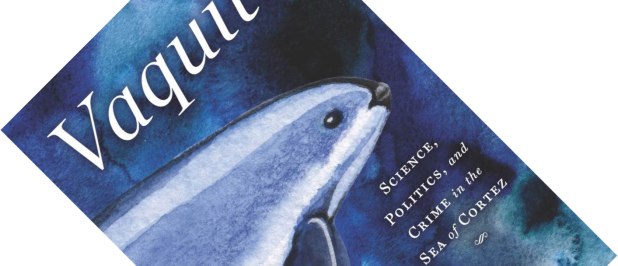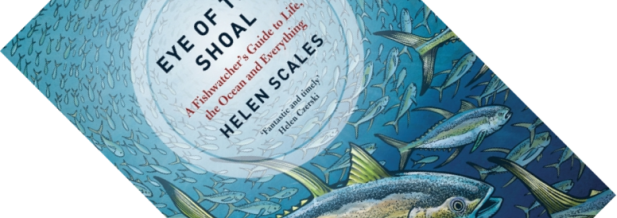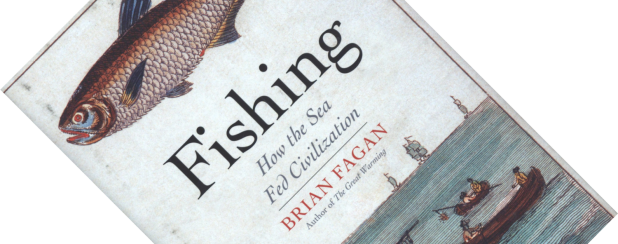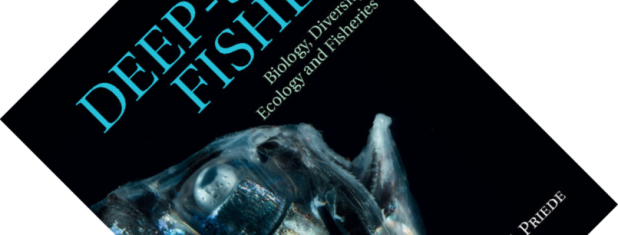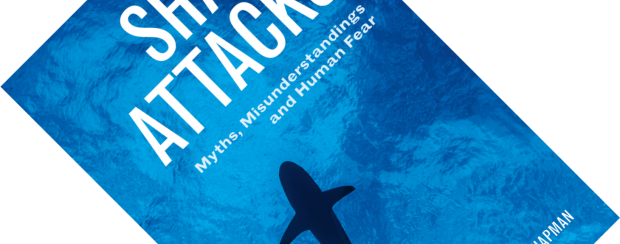If I asked you to name the most endangered cetacean species, I doubt the vaquita would come to mind. You might mention the baiji, the dolphin living in China’s Yangtze river, but alas, no living members of this species have been seen for years, despite intense search efforts, and the species is presumed extinct. Unfortunately, the vaquita seems to be next in line. Biologist Brooke Bessesen here tells its sad story, revealing the complex world of species conservation.
overfishing
Book review – The Seneca Effect: Why Growth is Slow but Collapse is Rapid
I am going to start this review on a tangent. The liner notes of the 1983 album Zeichnungen Des Patienten O.T. of the German industrial band Einstürzende Neubauten contained the slogan “Destruction is not negative, you must destroy to build”. I don’t expect that Ugo Bardi shares my taste in music, but, judging from this book, I’m sure that if we were to sit him down with the band members over a pint, they would have plenty to talk about. Because, according to Bardi, collapse is a feature, not a bug.
Book review – Spying on Whales: The Past, Present and Future of the World’s Largest Animals
It should have been a straightforward expedition. As a young career palaeontologist, Nick Pyenson found himself in the Atacama desert of Chile, tasked with mapping rock layers to establish a continuous chronology that would help dating fossils found in the area. Whale fossils, Pyenson’s speciality, are rarely found complete, which is true of most fossils. So what do you do when a colleague takes you to the construction site of a new highway and shows you not one, not several, but literally dozens of complete fossil whale skeletons? It represented a treasure trove for science, but retrieving the material before the highway constructors would move in was also a daunting, labour-intensive task that could make or break careers. I almost found myself standing next to Pyenson in the dusty clearing, the Chilean sun beating down on me as he faced this dilemma. This is just one of several immersive narratives recounted in Spying on Whales, which successfully blends travelogue and popular science.
Book review – Eye of the Shoal: A Fish-Watcher’s Guide to Life, the Ocean and Everything
Helen Scales is a marine biologist, diver, and surfer, and is no stranger to writing good books. I have previously read Poseidon’s Steed: The Story of Seahorses, from Myth to Reality from her hand. The book after that, Spirals in Time: The Secret Life and Curious Afterlife of Seashells, received critical praise in the press and was shortlisted for the Royal Society of Biology book prize. Here, Scales turns her attention to fish. Is this another page-turner waiting to be recognised?
Book review – Fishing: How the Sea Fed Civilization
Brian Fagan is a celebrated archaeologist and author who has written many books on the topic of environmental history. Several of these sit on my shelves, though I admit this is the first book by his hand that I have read. With Fishing, Fagan presents a deep history of fishing from the time of our human ancestors up to the present day, highlighting its overlooked role in the history of human civilization. His story spans the globe and pieces together a fragmented and complicated puzzle.
Book review – Effective Conservation Science: Data Not Dogma
Following hot on the heels of Cambridge’s Defending Biodiversity: Environmental Science and Ethics, Oxford University Press has just published the edited collection Effective Conservation Science: Data Not Dogma. Whereas the former title was careful about courting controversy, a quick scan of the chapter titles of this book suggest it is seeking out hot-button issues sure to upset some people (“Uncomfortable questions and inconvenient data in conservation science”, “Introduced species are not always the enemy of conservation”, or “Rehabilitating sea otters: feeling good versus being effective”). Together, these two books form an excellent combination of a philosophical and pragmatic examination of biodiversity conservation, and how we could do better.
Perhaps more than any other discipline, conservation science arouses strong feelings of righteousness, of fighting the good cause. Critical questions or results that run counter to the narrative of nature-in-decline are unwelcome, often out of fear that policymakers and the media will misinterpret such findings, leading to drastic reduction in support for conservation efforts. Though understandable, Effective Conservation Science is a collection of 26 cautionary tales of the dangers of such thinking.
Book review – Deep-Sea Fishes: Biology, Diversity, Ecology and Fisheries
It has become cliché to say that we know more about the surface of Mars than we do about the depths of our oceans, inaccessible as they are to us landlubbers. Nevertheless, technological advances have allowed us to discover more and more about the denizens of the deep. Anyone who has watched Blue Planet II or similar recent documentaries can testify to the bizarre and wonderful life forms that can be found there.
Book review – Shark Attacks: Myths, Misunderstandings and Human Fear
If there is one group of animals that Steven Spielberg has not done a favour, it must be sharks. Already feared as a dangerous predator in an environment where humans are not in their element the 1975 movie Jaws drove this fear to stratospheric heights and painted a portrait of these fish as ruthless man-eating monsters. Browse any selection of books on sharks, and you’re likely to see photos of a breaching great white, jaws agape. Many people are not happy with this Jaws effect (see for example Lindsay Abrams’s post on Salon or Marc Lapadula’s piece on Screenprism), and this lingering fear even affects policymakers (see Christopher Neff’s article in the Australian Journal of Political Science). Tobey Curtis provides an interesting counter note to this sentiment on The Fisheries Blog, also pointing out how – ironically – Peter Benchley, author of the book on which Spielberg based his movie, was actually an advocate for shark conservation (see his book Shark Trouble). As a side-note, shark attacks have happened for as long as human have entered the sea, though have long been poorly documented – Richard Fernicola’s Twelve Days of Terror: Inside the Shocking 1916 New Jersey Shark Attacks is a bit of an exception.
This, by way of a short introduction, brings us to the current book: Chapman’s Shark Attacks. The problem with shark attacks is that they are a bit like plane crashes: low-probability, high-impact events. You’re not likely to experience either, but when you do, the results can be disastrous. And thus we fear both flying and sharks.
Book review – All the Boats on the Ocean: How Government Subsidies Led to Global Overfishing
This book presents a historical analysis of overfishing, following up on her 2012 book All the Fish in the Sea: Maximum Sustainable Yield and the Failure of Fisheries Management. Though many reviews have been written on overfishing, and everyone agrees that too many fishing boats have been built, Finley contends that the question is never asked who built these boats in the first place. Her analysis aims to show that government policies, especially during the Cold War (1946-1990), have been responsible, with subsidies for the fishing industry being a proxy to attain other goals. As the opening sentence puts it: fishing has always been about more than just catching fish. The US-side of the story is scrutinised most intensely, though developments in other nations are covered at length.

